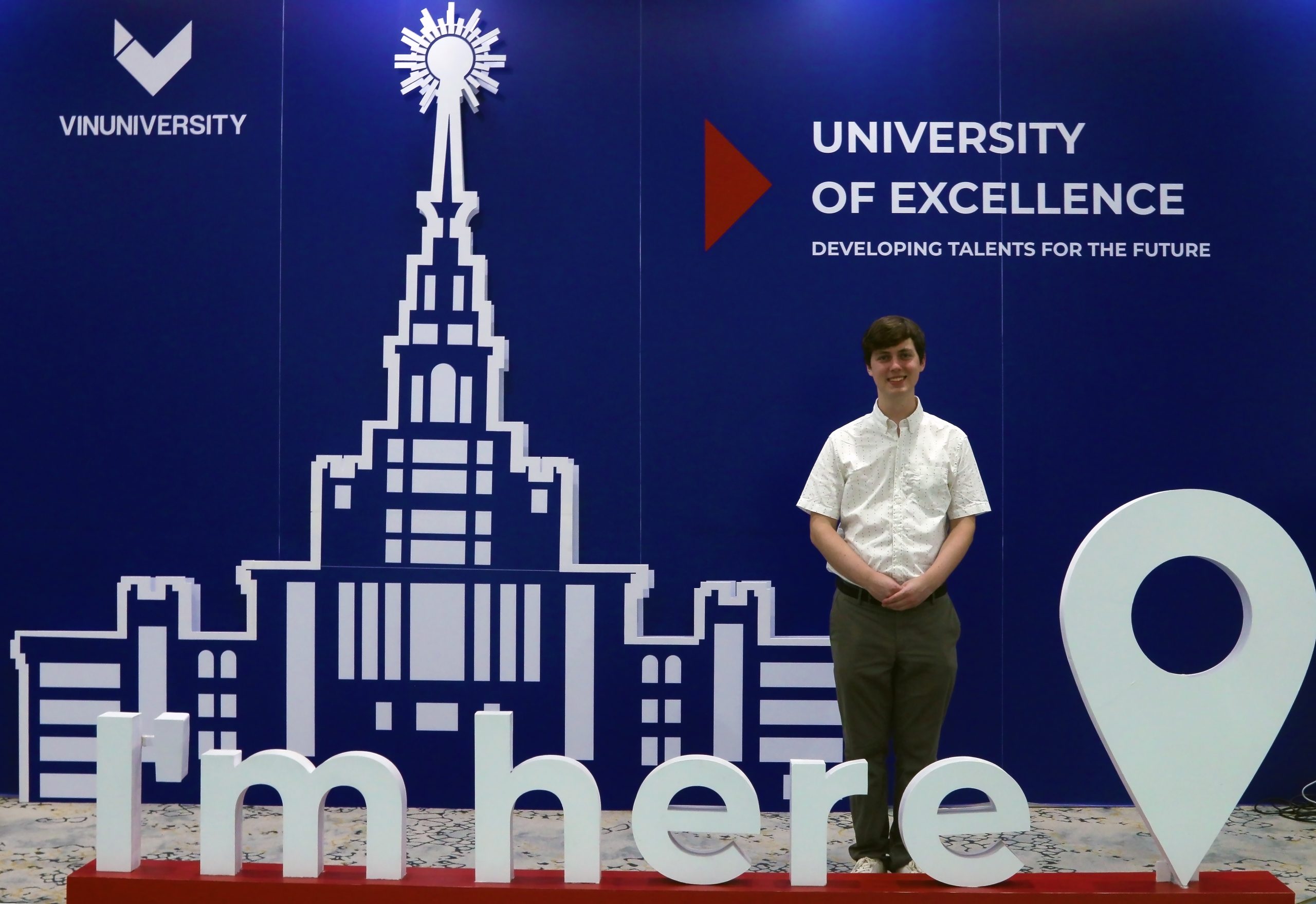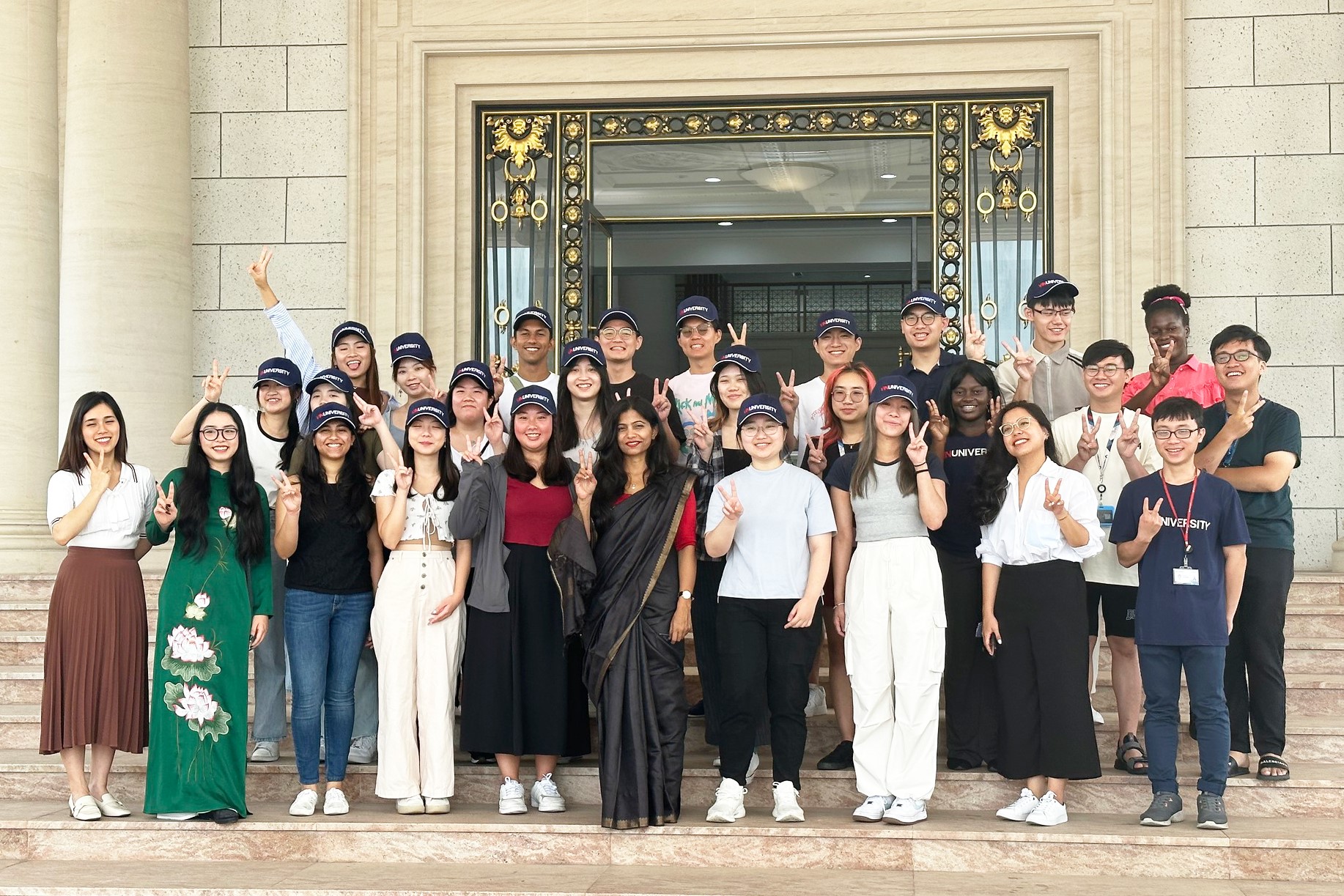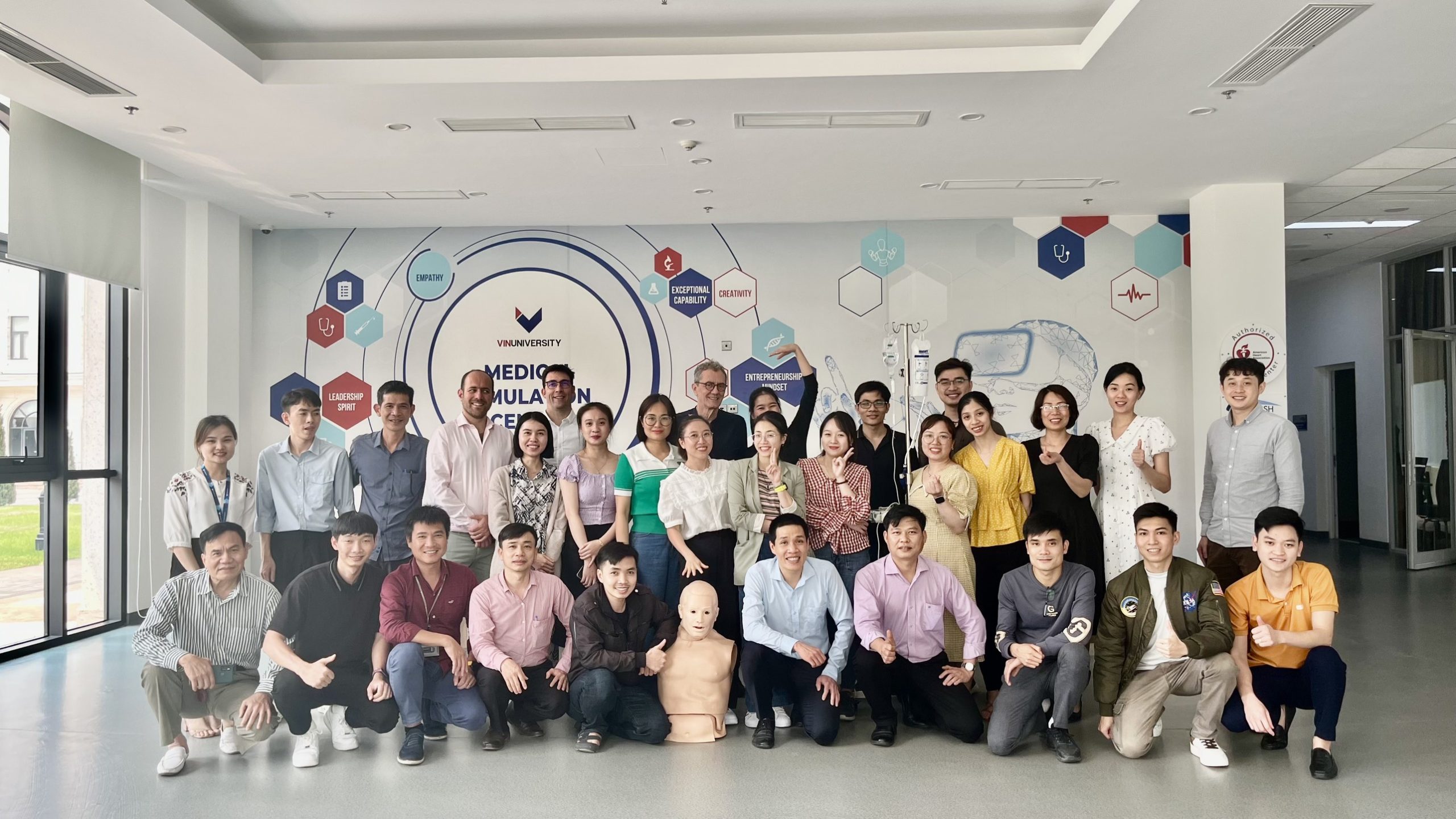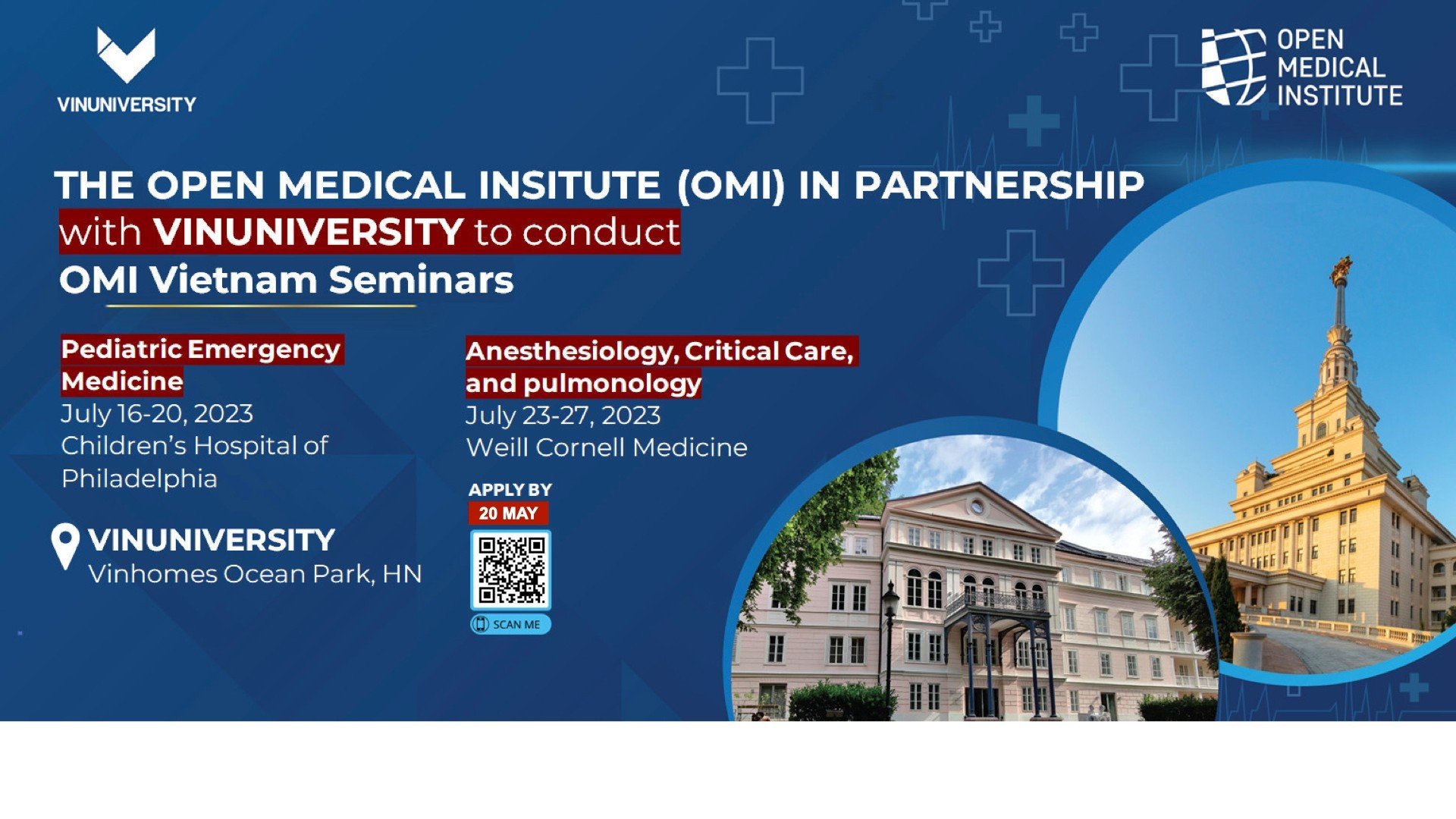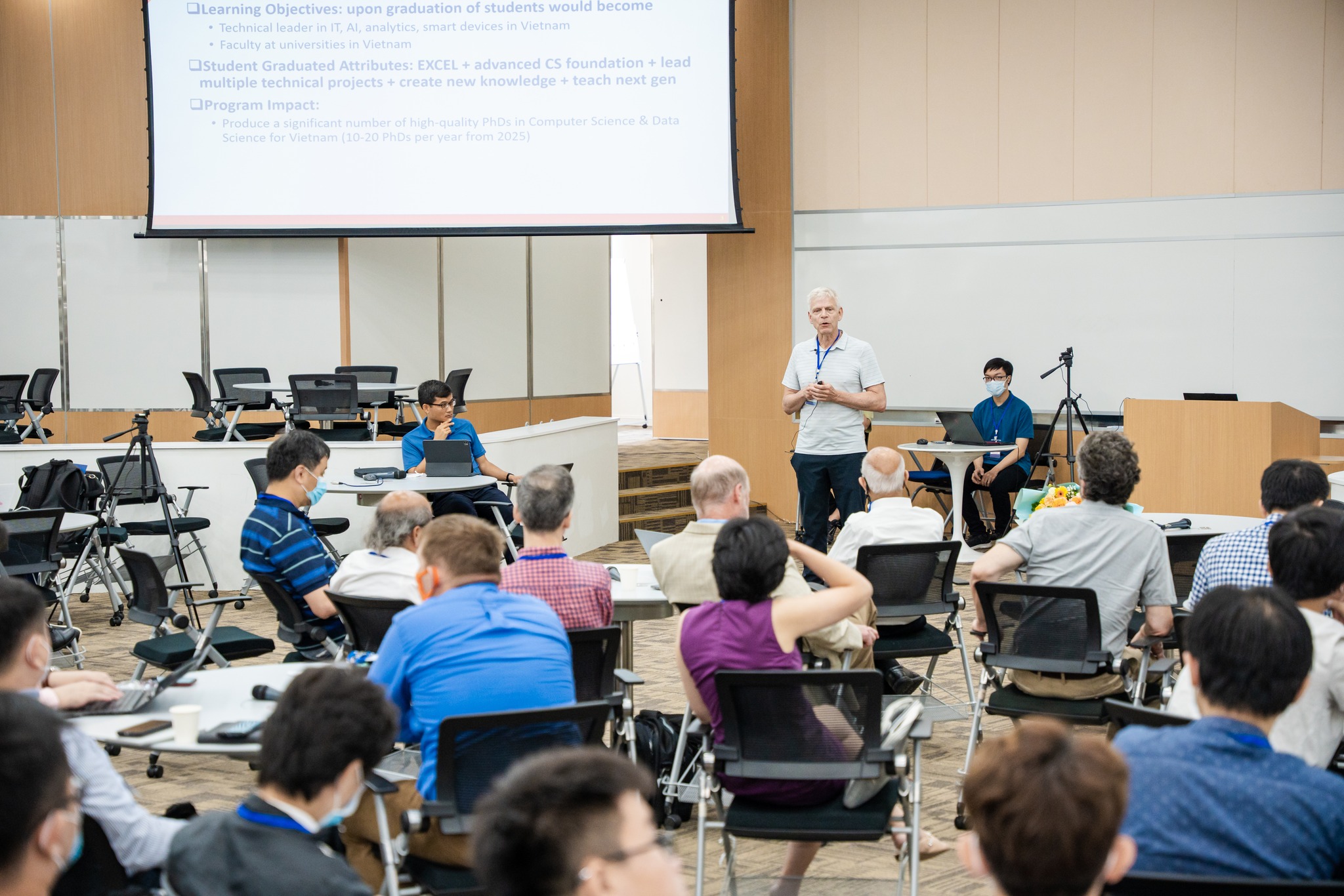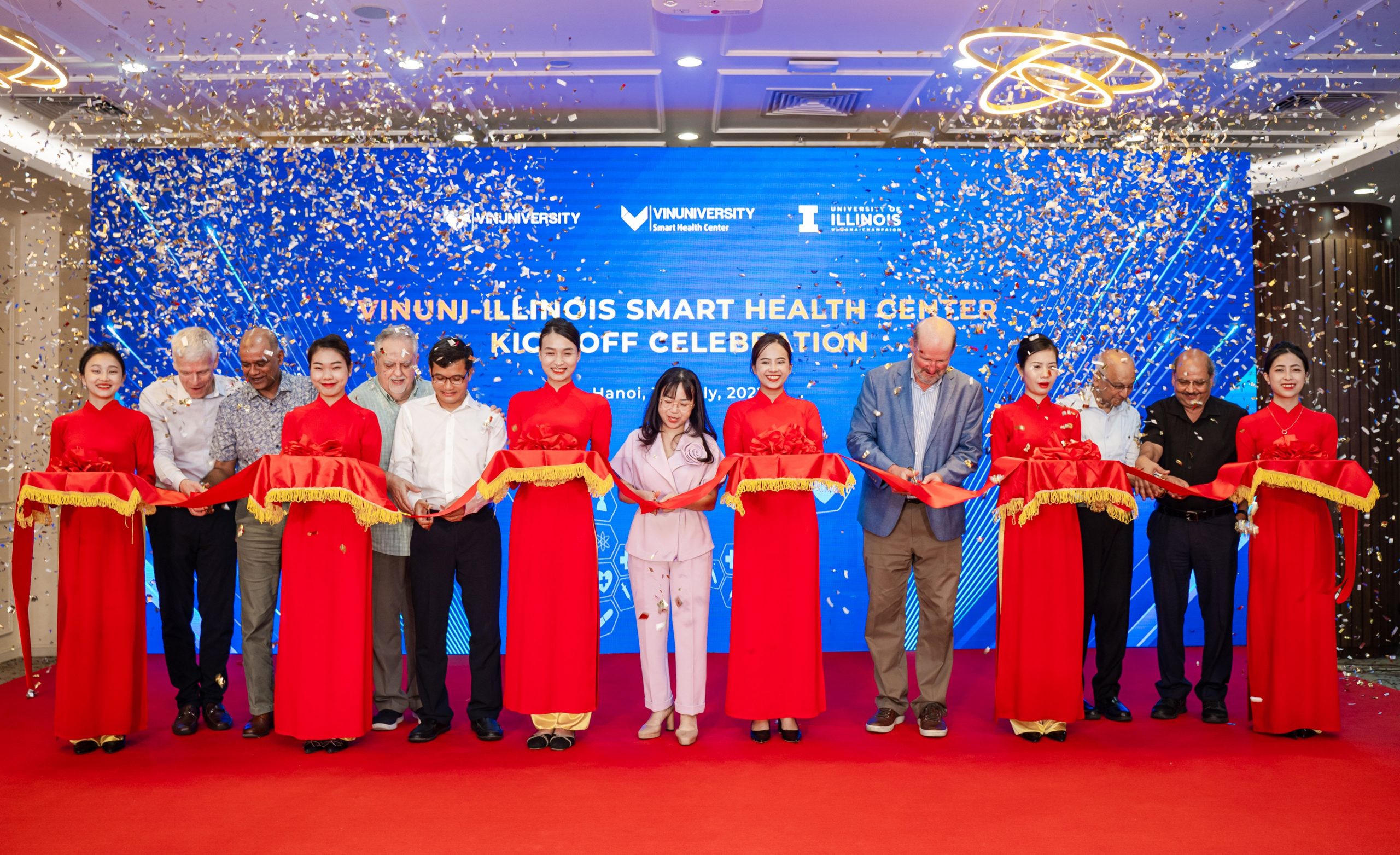We are honored to introduce Prof. Andrew William Taylor-Robinson, Professor of Microbiology & Immunology, College of Health Sciences, VinUniversity, who will soon join our community of professors, lecturers, and students. Prior to VinUni, Prof. Andrew was a Professor of Immunology and Hematology at various prestigious universities in Australia and the UK, such as the University of Central Queensland (top 2% of global universities according to THE World University Rankings 2022), Charles Darwin University (a THE top 75 Asia-Pacific University 2022), and the University of Leeds (2022 QS World University Ranking 92nd). Prof. Andrew was educated at University College London (2022 QS World University Ranking 8th and a THE ‘super elite’ university) and the University of Glasgow (2022 QS World University Ranking 67th).
With more than 30 years of research experience in immunology and medical microbiology, particularly on malaria, dengue and other mosquito-transmitted infectious diseases, Prof. Andrew’s work focuses primarily on analyzing the immune system’s mechanisms and responses to infection, thereby contributing to the enhancement of vaccines’ efficacy. Two of Prof. Andrew’s most prominent studies are “Regulation of the immune response by nitric oxide differentially produced by T helper type 1 and T helper type 2 cells” and “The role of TH1 and TH2 cells in a rodent malaria infection”, each of which has been cited by nearly 500 scientific articles in the field of Immunology.
In the context of the COVID-19 pandemic, Prof. Andrew is involved in immune system and immune enhancement research to contribute to the prevention and treatment of COVID-19 worldwide. His study “COVID-19 therapy: Could a chlorophyll derivative promote cellular accumulation of Zn2+ ions to inhibit SARS-CoV-2 RNA synthesis?” has discovered the role of zinc in the prevention of acute pneumonia, which could inhibit the SARS-CoV-2 virus and reduce symptoms of the disease. This has already received over 13,000 online views in the last 12 months. Another study by Prof. Andrew, “A combinational approach to restore cytokine balance and to inhibit virus growth may promote patient recovery in severe COVID-19 cases”, published in March this year, argues that cytokine balance may be restored by recovering an IL-6 trans-signaling neutralizing buffer system, using the ADAM17/TACE prodomain inhibitor. Prof. Andrew is also an Expert on the COVID-19 Expert Database, which is part of the Australian Academy of Sciences. This is a panel of respected experts, whose role is to advise governments, businesses, and research institutes in their decision-making processes during the pandemic.
Below is an excerpt from our conversation with Prof. Andrew William Taylor-Robinson, who will be in charge of Microbiology & Immunology teaching and research at the VinUni College of Health Sciences. Prof. Andrew is an member of the COVID-19 Expert Database, which is part of the Australian Academy of Sciences. Prior to VinUni, Prof. Andrew was a Professor of Immunology and Hematology at various prestigious universities in Australia and the UK, such as the University of Central Queensland (top 2% of global universities according to THE World University Rankings 2022), Charles Darwin University (a THE top 75 Asia-Pacific University 2022), and the University of Leeds (2022 QS World University Ranking 92nd).

There are many reasons for my decision. From learning of the vision of VinUni’s founders to strive to become a world-ranked tertiary education institution within a decade, I was impressed by the values, purpose, planning, and investment to make this ambitious goal a reality. Hence, I was motivated to join the talented team on this exciting journey, starting with my role as Professor of Microbiology & Immunology at VinUni. I considered that my scholarly experience, pedagogical skills and discipline-specific expertise would make a meaningful contribution to both innovative student-engaged learning & teaching and to research relevant to the local public health needs of the region. Moreover, I could envisage that VinUni’s Health Sciences graduates would have a real-world, long-lasting, beneficial impact on the wellbeing of Vietnamese people.

Immunology is the study of the cells, molecules, and tissues concerned in the defence of the body against any substance that is foreign to it (and thus not recognised as itself). This underpins the applied science of vaccinology. Introducing a vaccine into the body aims to both mimic and amplify the naturally acquired immune response to a pathogen, so that on subsequent exposure to the virus/bacterium/parasite the person is protected from disease. In recent times, there have been other viral respiratory disease pandemics, including two previous coronavirus outbreaks (of SARS-CoV and MERS-CoV), but none has proved to be as infectious and virulent as SARS-CoV-2. Similar to influenza, we may have to administer annual top-up vaccines, which are altered to combat newly predominant variants of the virus. By translating basic science into effective response strategies, the role of immunology research is central to preparedness against the present and any future pandemic.

Before SARS-CoV-2 emerged, we almost took for granted that vaccines for serious diseases, such as measles/mumps/rubella, diphtheria/tetanus/pertussis, chickenpox, influenza, hepatitis A & B, etc., are readily available. However, importantly, there is still no regulatory authority-approved vaccine against one of the ‘big three’ global infectious disease threats, namely HIV/AIDS, tuberculosis, and malaria. Achieving an effective vaccine against one of these would represent a major milestone in medicine and would save millions of lives every year, in which immunology research plays a central role.
Looking beyond infectious diseases, the dividend of many decades of fundamental immunological research is set to be realised, potentially touching virtually every aspect of health and wellbeing. For instance, investigations into the brain-body interface (the field of immune psychiatry) are continually finding more about the relationship between the mind and vascular inflammation and the association of systemic inflammation with depression. Also, we are learning that the microbiome (the sum of all the microorganisms that live on or in us, mostly in our gut), and the host’s response to it, appear to significantly influence immune and inflammatory responses. Immune-mediated inflammatory diseases, such as rheumatoid arthritis, lupus, Crohn’s disease, ulcerative colitis, psoriasis, and uveitis, have a major impact on quality of life of the individual affected.
Discoveries like these are translating immunological research into early diagnosis and improved patient experience. Such insights pave the way for a new generation of innovative ‘advanced therapeutics’ – monoclonal antibodies, recombinant proteins, cells or gene-modified cells that either inhibit aberrant immune responses to self, allergens, or transplant antigens, or amplify immunity against cancer cells that the immune system is otherwise inclined to ignore. I hope these breakthroughs can be pioneered and become readily available in Vietnam.

I feel extremely fortunate to have received the benefit of the wisdom of such distinguished professors at the outset of my career. Collectively, they instilled in me a passion for infection and immunity that still burns strong some 30 years later. As a facilitator of learning and a mentor, I hope to inspire my own students at VinUni to have a fascination for microbes, and to apply their knowledge to the development of Vietnam’s health sciences and healthcare services.
In terms of teaching, I would like my students to develop a holistic view of microbiology and of immunology that is fostered by clinical case-based learning. An integrated approach to curriculum delivery – reinforced by such active and collaborative learning techniques as small group discussions, practice by doing, and peer instruction – promotes synthesis of ideas from different specialties and encourages medical and nursing students to bring a deeper appreciation of clinical and basic sciences to the bedside.
In terms of research, I am committed to driving research capacity building, promoting best practice, and supporting junior faculty at VinUni through training opportunities, mentorship and internal collaboration. I would like to focus on developing a thriving postgraduate research community in the College of Health Sciences, moving towards research excellence in the field of Medicine. This brings direct benefits to our undergraduate students who will be exposed to the nexus of research-integrated learning.
Read more about Prof. Andrew at: https://vinuni.edu.vn/people/andrew-w-taylor-robinson-phd/

